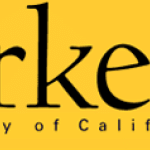- Industry: Education
- Number of terms: 4017
- Number of blossaries: 0
- Company Profile:
Because particle physics often requires high-energy particles to probe short distances, particle physics and high-energy physics are often used interchangeably. See accelerator.
Industry:Physics
This is a measure of the total data collected at an accelerator. It is the intensity of the accelerator, summed over some specified time period. A barn<sup>-1</sub> (inverse barn) of data will give one event for a process that has a cross-section of one barn. A picobarn<sup>-1</sup> (a much larger amount of data) will give one event for a much rarer process that has a cross-section of one picobarn.
Industry:Physics
Along with quarks, leptons make up all known matter. Unlike quarks, leptons do not participate in strong interactions. Neutrinos and electrons are two common examples. There are three flavors of leptons: electron, muon, and tau.
Industry:Physics
A fundamental particle, identical to the electron, but approximately 200 times heavier. It is commonly found in cosmic rays.
Industry:Physics
an uncharged, weakly interacting lepton, most commonly produced in nuclear reactions such as those in the sun. There are three known flavors of neutrino, corresponding to the three flavors of leptons. Recent experimental results indicate that all neutrinos have tiny masses.
Industry:Physics
One of the constituents of atoms. Along with the proton, the neutron is found in the nuclei (centers) of atoms. Neutrons have no electric charge, and are composed of two down quarks and an up quark.
Industry:Physics
The constituents of protons and neutrons are quarks, gluons and anti-quarks. They are collectively known as partons.
Industry:Physics
These functions parameterize the composition (quarks, anti-quarks and gluons) of various hadrons. They describe the probability of finding a given constituent with a given momentum.
Industry:Physics
